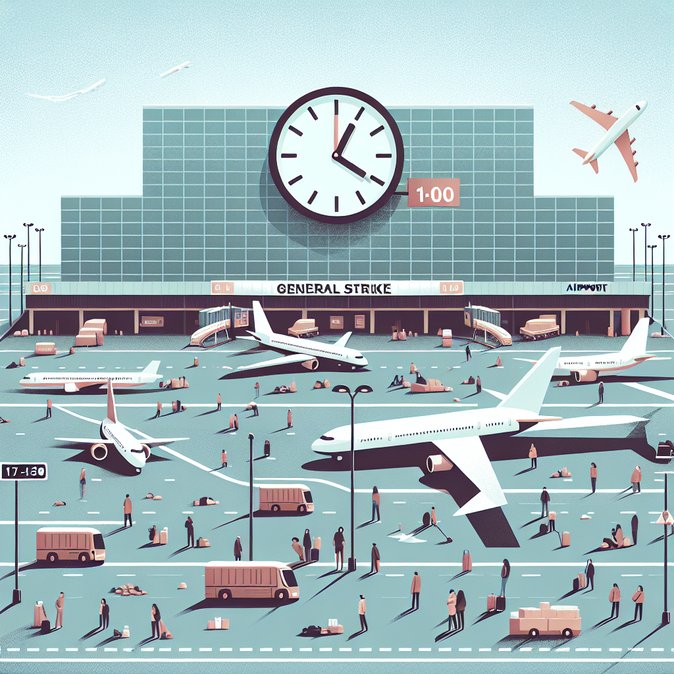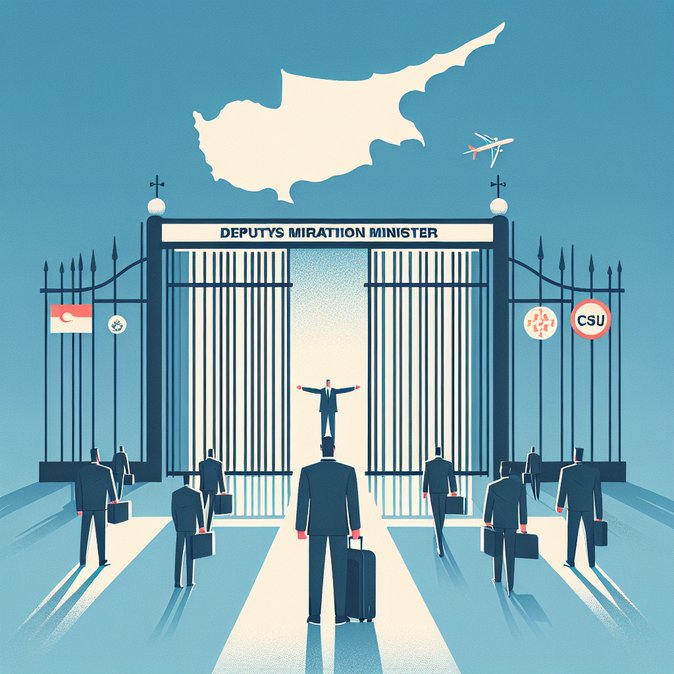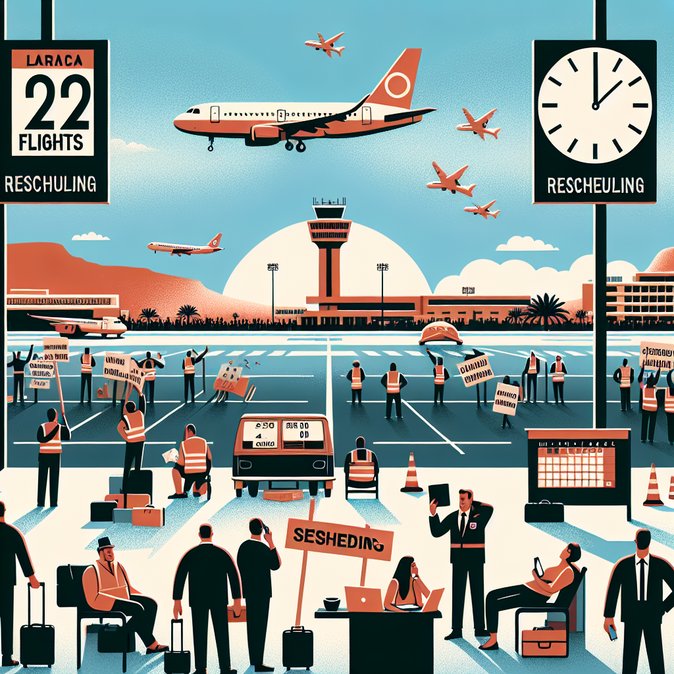
Hermes Airports, the operator of Cyprus’ two international gateways, confirmed late on 19 November that tomorrow’s three-hour general strike (11:00-14:00) will disrupt at least 54 scheduled services—38 at Larnaca and 16 at Paphos. The walk-out has been called by the island’s major public- and private-sector unions to demand the reinstatement of the Automatic Tariff Adjustment (ATA) cost-of-living mechanism that was suspended during the 2013–15 financial crisis.
Although the stoppage is relatively brief, its timing sits squarely in a peak departure window for business travellers and inbound tour flows from Europe and the Middle East. Hermes estimates that more than 15 000 passengers will be affected. Airlines have begun pre-emptive cancellations: Jazeera Airways (Kuwait), Qatar Airways (Doha) and Emirates (Dubai–Larnaca–Malta) have scrubbed round-trips, while several EU carriers are retiming flights to arrive before or depart after the strike. Ground-handling firms have agreed to bring in extra staff from 14:00 to reduce knock-on delays, but travellers have been told to expect queuing at check-in, security and immigration until early evening.
![General strike to ground more than 50 flights at Cyprus’ Larnaca and Paphos airports on 20 November]()
For corporate mobility managers the disruption is a reminder that Cyprus, despite its efficient airports, remains sensitive to nationwide industrial action because there are no practical rail or long-distance ferry alternatives. Companies with regional headquarters in Nicosia, Limassol and Larnaca are advising assignees and visiting executives to monitor airline apps, keep digital boarding passes handy and allow additional processing time at border controls once the walk-out ends.
Business-critical consignments that rely on belly-hold cargo capacity—pharmaceutical samples, just-in-time electronics and e-commerce parcels—will also feel the pinch. Freight forwarders told local media they are rerouting urgent shipments through Athens and Istanbul, but warned that handling charges will rise. Travel-risk consultancies meanwhile rate the strike as “low to moderate security risk” but urge travellers to avoid large demonstrations planned outside the parliament building in Nicosia.
The strike is the first test of newly appointed Labour Minister Marianna Charalambous, who has promised to table ATA reform proposals by year-end. Should negotiations stall, unions have threatened rolling 24-hour stoppages in December—directly in the middle of Cyprus’ winter holiday peak—raising the stakes for airlines and the island’s tourism-dependent economy.
Although the stoppage is relatively brief, its timing sits squarely in a peak departure window for business travellers and inbound tour flows from Europe and the Middle East. Hermes estimates that more than 15 000 passengers will be affected. Airlines have begun pre-emptive cancellations: Jazeera Airways (Kuwait), Qatar Airways (Doha) and Emirates (Dubai–Larnaca–Malta) have scrubbed round-trips, while several EU carriers are retiming flights to arrive before or depart after the strike. Ground-handling firms have agreed to bring in extra staff from 14:00 to reduce knock-on delays, but travellers have been told to expect queuing at check-in, security and immigration until early evening.

For corporate mobility managers the disruption is a reminder that Cyprus, despite its efficient airports, remains sensitive to nationwide industrial action because there are no practical rail or long-distance ferry alternatives. Companies with regional headquarters in Nicosia, Limassol and Larnaca are advising assignees and visiting executives to monitor airline apps, keep digital boarding passes handy and allow additional processing time at border controls once the walk-out ends.
Business-critical consignments that rely on belly-hold cargo capacity—pharmaceutical samples, just-in-time electronics and e-commerce parcels—will also feel the pinch. Freight forwarders told local media they are rerouting urgent shipments through Athens and Istanbul, but warned that handling charges will rise. Travel-risk consultancies meanwhile rate the strike as “low to moderate security risk” but urge travellers to avoid large demonstrations planned outside the parliament building in Nicosia.
The strike is the first test of newly appointed Labour Minister Marianna Charalambous, who has promised to table ATA reform proposals by year-end. Should negotiations stall, unions have threatened rolling 24-hour stoppages in December—directly in the middle of Cyprus’ winter holiday peak—raising the stakes for airlines and the island’s tourism-dependent economy.


